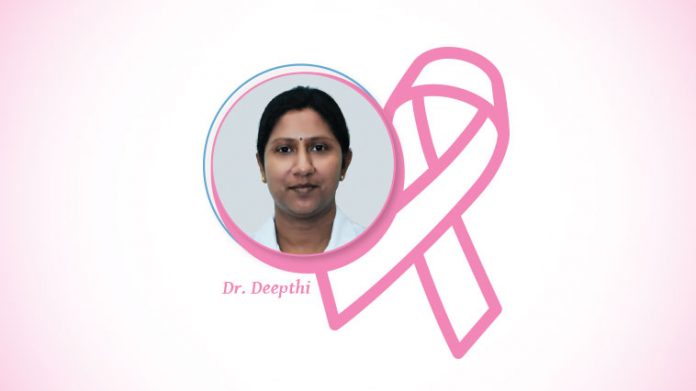Breast cancer makes up about 30 per cent of new cancer diagnoses in women and 15 per cent of all new cancer cases each year. The disease can affect men, too, but this is very rare.
Approximately one in eight women will be diagnosed with invasive breast cancer at some point in their lives. Awareness of the symptoms and screening are important in reducing the risk.
The first symptoms of breast cancer are usually a lump in the breast or in the armpit, characteristically painless unless in late stages, and nipple or skin changes.
OUTLOOK
An early diagnosis of breast cancer not only increases the chance of cure, but also decreases the treatment time and fewer modalities of treatment may be needed.
With treatment, a woman who receives a diagnosis of stage zero or stage one breast cancer has an almost 95 to 100 per cent chance of surviving for at least five years. If the diagnosis is made at an advanced stage, this is reduced to around 22 per cent.
PREVENTION
Lifestyle decisions can significantly reduce the risk of breast and other types of cancer.
Avoiding excess alcohol and high fatty food consumption.
Following a healthy diet with plenty of fresh fruit and vegetables and oily fish.
Antioxidant foods may be taken daily, especially berries, dark chocolate (above 80 per cent cocoa), green tea, etc.
Physical activity of at least 30 minutes every day.
Maintaining a healthy body mass index (BMI).
Reduced exposure to estrogen, especially HRT (breast feeding helps).
REMEMBER
Many breast lumps are not cancerous, but any woman who is concerned about a lump or change should see a doctor.
Regular checks and screening can help detect symptoms early. Women can discuss the frequency and risk reduction options with their doctor.
High-risk individuals (when a first-degree relative has breast or ovarian cancer and women who carry the BRCA1 and BRCA2 genes) may need more frequent and early screening.
Call 17 812-222 or email [email protected]


































